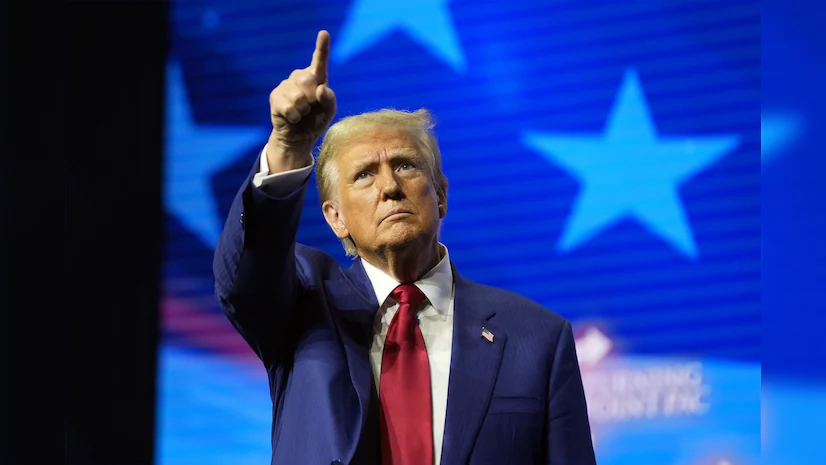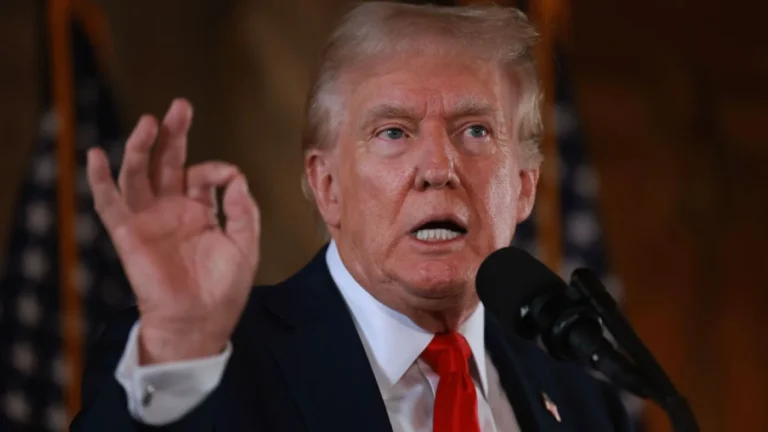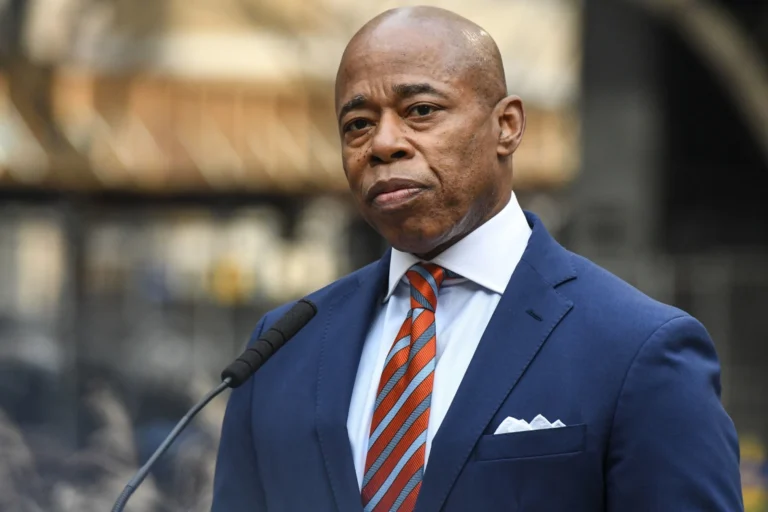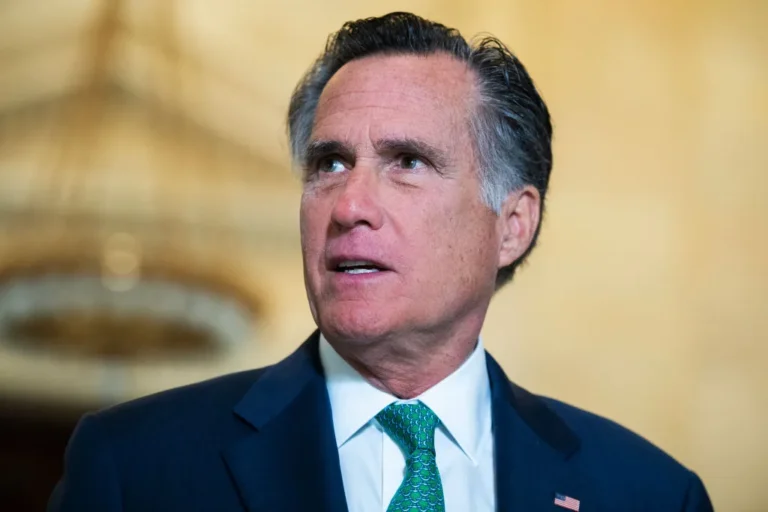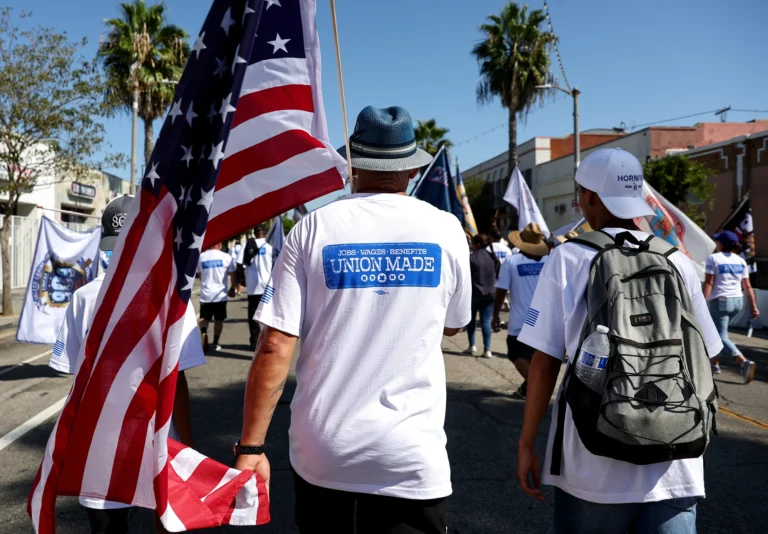President-elect Donald Trump has appointed Tom Homan, a staunch immigration hard-liner, as his “Border Czar,” a role expected to grant him significant influence over immigration policy while bypassing the oversight typically required of Cabinet members. Homan, the former acting director of U.S. Immigration and Customs Enforcement (ICE), is known for advocating mass deportations of undocumented immigrants, and his new appointment positions him to play a central role in executing Trump’s stringent immigration plans.
Unlike traditional Cabinet appointments, Homan’s role will not require Senate confirmation, freeing him from certain congressional checks. Trump’s announcement on Truth Social confirmed Homan’s extensive purview, stating that he would oversee not only the deportation of undocumented immigrants but also security along the nation’s borders, maritime, and aviation points of entry. In essence, Homan’s position as Border Czar grants him broad authority without the formal restrictions and guardrails that accompany a Cabinet secretary’s role.
Katherine Hawkins, a senior legal analyst at the Project on Government Oversight, noted that White House appointees, such as czars, are subject to less congressional oversight than Cabinet officials. Congress has limited authority to enforce subpoenas against White House staff, who are more likely to invoke executive privilege, often shielding them from legislative scrutiny. This structure could allow Homan to operate with considerable independence, advancing Trump’s immigration agenda without the formal constraints that accompany Cabinet-level roles.
Homan’s previous tenure with ICE was marked by his support for hardline policies, including the “zero tolerance” policy that led to family separations at the border before it was later reversed in 2018. His views align with Trump’s campaign promises to strengthen immigration enforcement and carry out mass deportations of undocumented individuals, aiming to deliver on a key element of Trump’s platform. With a position that sidesteps some oversight measures, Homan could potentially implement broad changes that could face fewer institutional checks.
Attorney Lee Gelernt of the American Civil Liberties Union (ACLU) shared concerns that Homan’s influence may, in fact, increase because he is not occupying a traditional agency position, which would typically have more transparency and congressional oversight. In Gelernt’s view, the lack of formal accountability in Homan’s position as Border Czar could make it challenging to meaningfully monitor his actions as he oversees the implementation of Trump’s immigration policies.
Faisal Al-Juburi, chief external affairs officer at RAICES, an immigrant rights advocacy group, echoed this concern, arguing that czar-like roles can have substantial policy impacts while bypassing crucial congressional oversight. Al-Juburi said that such roles can create opaque authority structures, making it difficult to hold individuals accountable for decisions that could have significant implications for Americans and immigrant communities.
In Homan’s case, the potential reach of his position is formidable. During the 2024 Republican National Convention, he vowed to lead what he called “the biggest deportation force this country has ever seen.” His statements reflect a strong commitment to implementing mass deportation, a policy initiative that would present considerable logistical, financial, and humanitarian challenges. Such efforts would necessitate extensive collaboration between federal agencies, local law enforcement, and even foreign governments to coordinate the deportation of a vast number of individuals, including families with children.
Homan’s position recalls the influence wielded by Stephen Miller, a key immigration adviser in Trump’s first administration, who often pushed forward stringent immigration policies despite opposition. Miller, who is expected to return as Trump’s deputy chief of staff for policy, frequently managed to influence policy decisions through his direct line to Trump, signaling that Homan could hold similar sway within the new administration.
Professor John Harrison of the University of Virginia School of Law noted that, while White House staffers like Homan may not possess formal legal authority, they often wield significant informal influence. This influence can shape policy decisions effectively, even if they lack the official power typically held by agency heads. In Homan’s case, this informal authority, coupled with reduced oversight, positions him to have considerable impact on Trump’s immigration strategy.
Homan’s appointment reflects a broader intent by the Trump administration to enhance the enforcement of immigration policies on an international scale. With his new role, Homan is set to direct Trump’s immigration agenda with an unusual level of autonomy. Whether these strategies will be practically feasible remains to be seen. However, his appointment signifies a pivotal shift in Trump’s approach to immigration policy, granting Homan a level of discretion that could significantly influence the direction and intensity of U.S. immigration enforcement under the upcoming administration.
